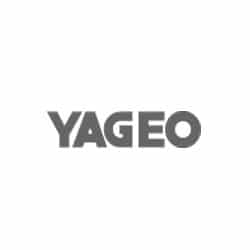source: Taipei times news
Passive components manufacturer Yageo Corp expects to see its revenue grow by 3.62 percent this year, benefiting from the company’s latest price hike on chip resistor products, First Capital Management Inc said on Thursday.
The company’s price increases of 15 to 20 percent on certain chip resistor products, announced on Wednesday, could increase revenue by NT$1.17 billion (US$39.53 million), while boosting its gross margin by between 3 and 4 percentage points and lifting its earnings per share by NT$0.9, First Capital said in a statement.
Yageo is one of the world’s major suppliers of resistors — an electronic component used to resist or reduce the amount of current flowing in an electronic circuit — controlling one-third of the global market share, with rivals including Taiwan’s Walsin Technology Corp and Ralec Electronic Corp as well as Japan’s Rohm Co Ltd and KOA Corp, Taishin Securities Investment Advisory Co said in a separate statement on Thursday.
Yageo reported total revenue of NT$32.26 billion last year, up 8.91 percent from 2016, as the company raised prices for its multilayer ceramic capacitor (MLCC) products four times throughout the year amid a supply crunch.
Chip resistor sales contributed NT$14.2 billion to Yageo last year, accounting for about 44 percent of its total revenue, with MLCCs making up 50 percent, Taishin said.
Viking Tech Corp, a supplier of resistors and inductors, also on Thursday announced that it would raise prices for several chip resistors by 10 percent, due to higher prices for raw materials such as packaging material, paste, electroplating material and ceramic substrate.
Yageo’s and Viking Tech’s price hikes came after Ralec announced on Jan. 2 that it would raise prices for some chip resistor products by up to 15 percent for greater China distributors and agents.
The shortage in chip resistor supplies began in the third quarter of last year and the situation is expected to persist into the first half of this year, as major manufacturers in Japan are moving to focus on high-end products amid a trend toward automotive electronics, analysts said, adding that increases in resistor supplies at Taiwanese suppliers have been limited, while raw material and labor costs continue to rise and the New Taiwan dollar struggles against the US dollar, analysts said.
Yageo’s stock price closed 2.98 percent lower at NT$375 in Taipei trading on Friday.
Over the past 12 months, the stock has surged more than 466 percent, compared with the main bourse’s 15.7 percent rise over the same period, Taiwan Stock Exchange data showed.
Yageo resumes taking orders for chip resistors from China clients
Taiwan-based passive components supplier Yageo has decided to resume taking orders for chip resistors from China customers at 15-20% higher quotes amid serious shortages in the market and rising prices, according to industry sources.
The move came in less than 20 days after the company announced on December 26 its decision to stop accepting orders for thick film chip resistors from channel operators in China due to tight capacity.
The sources said that Yageo has managed to hike prices for commodity passive components, including MLCCs and chip resistors, by 15-20% at the beginning of 2018, mainly because the price hikes are now more acceptable to China customers increasingly plagued by serious supply shortfall of passive components.
In fact, Yageo’s latest price hikes are designed to reflect its increase in production cost, as the price for ruthenium, a main material for chip resistors, has shot up 2-fold so far from February 2017, while China’s increasingly stringent environmental regulations have also pushed up production costs of the firm’s plants in the country. In the past, Yageo could hardly pass the increased costs onto customers, but the changing market conditions have made customers willing to accept price hikes, the sources indicated.
China market sources said that MLCC spot market prices have soared 10-fold within less than two months, with electronic parts and components retailers on the Huaqiang North street, which is touted as “China’s top electronics street,” in Shenzhen reportedly rushing to hoard up capacitors.
But Taiwan supply chain players said that the shortages of passive components in 2018 should not be worse than in 2017, and the rampant galloping of MLCC prices should mainly result from manipulations by China distributors. But the players are afraid that the manipulations might lead to a serious market disorder.
‧ A price hike of 15 to 20 percent on certain chip resistors could raise revenue by NT$1.17bn.
‧ Resistor sales make up 44% of revenue.
‧ Viking Tech is also to raise prices by 10% due to higher raw material prices.
‧ The supply shortage is expected to continue into the first half of this year.
